Hadith No. 6 Avoiding Doubtful Matters: The Role of Piety and the Heart in Preserving Faith
عَنْ أَبِيْ عَبْدِ اللهِ النُّعْمَانِ بْنِ بِشِيْر رضي الله عنهما قَالَ: سَمِعْتُ رَسُوْلَ اللهِ ﷺ يَقُوْلُ: (إِنَّ الحَلالَ بَيِّنٌ وَإِنَّ الحَرَامَ بَيِّنٌ وَبَيْنَهُمَا أُمُوْرٌ مُشْتَبِهَات لاَ يَعْلَمُهُنَّ كَثِيْرٌ مِنَ النَّاس،ِ فَمَنِ اتَّقَى الشُّبُهَاتِ فَقَدِ اسْتَبْرأَ لِدِيْنِهِ وعِرْضِه، وَمَنْ وَقَعَ فِي الشُّبُهَاتِ وَقَعَ فِي الحَرَامِ كَالرَّاعِي يَرْعَى حَوْلَ الحِمَى يُوشِكُ أَنْ يَقَعَ فِيْهِ. أَلا وَإِنَّ لِكُلِّ مَلِكٍ حِمَىً. أَلا وَإِنَّ حِمَى اللهِ مَحَارِمُهُ، أَلا وإِنَّ فِي الجَسَدِ مُضْغَةً إِذَا صَلَحَتْ صَلَحَ الجَسَدُ كُلُّهُ وإذَا فَسَدَت فَسَدَ الجَسَدُ كُلُّهُ أَلا وَهيَ القَلْبُ) رواه البخاري ومسلم .
On the authority of Abu Abdullah, al-Nu'man ibn Bashir (may Allah be pleased with both of them), who said:
I heard the Messenger of Allah (ﷺ) say:
"Indeed, the lawful (halāl) is clear, and the unlawful (harām) is clear, and between the two are ambiguous matters which many people do not know. So whoever avoids the doubtful matters has protected his religion and his honour. And whoever falls into doubtful matters will eventually fall into the unlawful, like a shepherd who grazes his flock near a protected sanctuary; he is bound to fall into it. Verily, every king has a sanctuary, and the sanctuary of Allah is His prohibitions. Truly, in the body, there is a morsel of flesh which, if it is sound, the entire body will be sound; and if it is corrupt, the entire body will be corrupt. Verily, it is the heart."
– Reported by Al-Bukhari and Muslim.
About the Narrator Al-Nu'man ibn Bashir
Al-Nu'man ibn Bashir ibn Sa'd ibn Tha'labah ibn Jalas ibn Zayd al-Ansari al-Khazraji, whose kunya (nickname) was Abu Abdullah, did not witness the pre-Islamic period of ignorance (Jahiliyyah). He was the first child born to the Ansar in Islam after the Hijrah, born fourteen months after the migration. His birth took place in Madinah in the month of Jumada al-Awwal in the second year after the Hijrah. His father is Bashīr ibn Sa‘d ibn Tha‘labah (died 12 AH), a Companion from the tribe Al-Khazraj, who participated in the Second Pledge of ‘Aqabah and witnessed all the major events alongside the Prophet (ﷺ).
His mother is ‘Amrah bint Rawāḥah, the sister of the Companion ‘Abdullah ibn Rawāḥah, She brought him to the Prophet (ﷺ) upon his birth, and the Prophet (ﷺ) performed tahnik (rubbing a chewed date on the baby’s gums) and gave her glad tidings that her son would live a praiseworthy life, die as a martyr, and enter Paradise.
Al-Nu'man held a high position with Mu'awiyah (may Allah be pleased with him), who said:
"O people of the Ansar, you accuse me of neglecting you, while none of you accompanied me except for al-Nu'man ibn Bashir. You have seen how I treated him."
Mu'awiyah appointed him as governor of Kufa and honoured him. After the death of Yazid ibn Mu'awiyah, al-Nu'man pledged allegiance to Abdullah ibn al-Zubayr. However, the people of Homs turned against him, and he fled was killed in the year 65 AH as predicted by the Prophet (ﷺ).
Along with Al-Nu'man, seven other prominent Companions (may Allah be pleased with them) also have narrated this hadith.
Significance of the Hadith:
The hadith holds a critical position in Islamic teachings. Scholars throughout history have highlighted its comprehensive nature and its foundational role in Islamic jurisprudence and ethics.
Imam Shams al-Dīn al-Kirmānī (رحمه الله), in his commentary on Sahih al-Bukhari, stated that the scholars unanimously regard this hadith as one of the most significant in Islam. It is considered among the “pillars of Islam”, forming a triad along with the following hadiths:
- “Actions are judged by intentions” (Sahih al-Bukhari, Hadith 1).
- “Part of a person's good Islam is to leave that which does not concern them” (Sunan al-Tirmidhi, Hadith 2318).
Abu Dawud added a fourth pivotal hadith:
- “None of you truly believes until he loves for his brother what he loves for himself” (Sahih al-Bukhari, Hadith 13).
Ibn Daqiq al-‘Eid (رحمه الله) described this hadith as a “great foundational principle” in Islamic jurisprudence.
Many scholars noted that this hadith encapsulates multiple key principles of the Shariah, including encouragement to engage in halāl and avoid harām, advising caution and abstention from doubtful matters, emphasising the need to protect one's religion and honour, advocating against behaviour that may lead to suspicion or prohibited actions and stressing the centrality of the heart and its role in determining overall piety. (Al-Jurdani, Al-Jawāhir al-Lu’lu’iyyah fī Sharḥ al-Arba‘īn al-Nawawiyyah)
The hadith teaches Muslims to avoid areas of doubt to maintain moral integrity. This practice is essential in situations where halāl and harām overlap or are unclear. Ibn Hajar al-Haytami (رحمه الله) highlights that avoiding doubtful matters is a hallmark of piety. Refraining from such matters safeguards both one’s religious standing and social reputation.
The concept of being cautious about doubtful matters reminds believers of their accountability, urging them to prioritise their faith over convenience. The hadith emphasises the importance of scholarly efforts in clarifying ambiguous matters. Ordinary individuals are encouraged to seek knowledge and consult qualified scholars when in doubt. By focusing on the heart, the hadith connects outward actions to inner purity. It serves as a reminder that spirituality and ethics are deeply intertwined in Islam.
Explanation of the Hadith
The hadith begins by stating, “Indeed, the lawful (halāl) is clear, and the unlawful (harām) is clear...” This declaration establishes the clarity of Islamic rulings regarding permissible and prohibited actions. Scholars explain that halāl refers to actions or items that are explicitly lawful, with no doubt regarding their permissibility. Such matters are clear and well-defined in Islamic teachings. For example, consuming permissible food like fruits, vegetables, or animals slaughtered according to Islamic law is undoubtedly halāl. This clarity stems from the absence of any prohibitive attributes or conditions associated with such items. Ibn Hajar Al-Haytami emphasizes that absolute halāl pertains to things free from attributes or causes that lead to impermissibility.
Similarly, harām refers to actions or items that are unequivocally forbidden, with clear evidence from the Qur’an, Sunnah, or ijmā‘ (scholarly consensus). These prohibitions arise due to either the inherent nature of the object, such as the intoxicating property of alcohol, or external causes, such as fraudulent dealings. Examples of harām items include pork, carrion, and usurious transactions.
The hadith further introduces a third category, “and between the two are ambiguous matters (umūr mushtabihāt),” referring to actions or items whose permissibility or prohibition is unclear. These matters exist in a grey area due to the lack of explicit textual evidence or because evidence appears contradictory. For example, disputes among scholars over issues like the permissibility of consuming certain fermented drinks (nabīdh) or specific trade practices, such as bay‘ al-‘īnah (a sale resembling usury), illustrate the nature of doubtful matters.
Imam al-Nawawi, in Sharah Muslim, explains that doubtful matters (shubuhāt) are those whose permissibility or prohibition is unclear. While most people may not know their rulings, scholars can determine them through textual evidence, analogy (qiyās), continuity of the original ruling (istishāb), or other methods. When there is no explicit evidence or consensus, a mujtahid (jurist) applies ijtihād to derive a ruling. If uncertainty remains, piety (war‘) dictates avoiding such matters to protect one’s religion and honour, as advised in the hadith.
Al-Nawawi further adds that, for ambiguous cases unresolved by scholarly effort, different opinions exist but the preferred opinion is that no ruling (permissibility, prohibition, or neutrality) is applied without clear evidence, as obligations and prohibitions are established only through Islamic law.
The hadith also provides practical guidance on dealing with doubtful matters. While scholars may deduce rulings through analogy (qiyās), textual evidence, or other principles, most people lack the knowledge to evaluate these complexities. Consequently, the Prophet (ﷺ) advises believers to exercise caution and avoid doubtful matters to safeguard their religion and dignity. This aligns with the broader principle of taqwā (God-consciousness), which encourages abstaining from actions that may lead to sin.
Ibn Hajar al-Haytami elaborates on the practical application of this principle. He notes that when doubt persists regarding an action’s permissibility, piety requires avoiding it unless evidence clearly supports its lawfulness.
Piety (War‘) : Essence of the Hadith
The crux of this hadith is the concept of piety (war‘), as derived from the portion “Whoever avoids doubtful matters has protected his religion and honour”, which plays a foundational role in Islamic ethics. War‘ signifies a heightened level of consciousness and caution in avoiding not only the clearly prohibited but also ambiguous and doubtful matters. This principle is supported by prophetic examples, sayings, and the views of scholars throughout Islamic history.
When a woman claimed to have breastfed a man and his wife, the Prophet (ﷺ) advised, “Has it not been said? Then leave her.” This illustrates how war‘ involves abstaining from potentially prohibited relationships, even when the evidence may not be conclusive (Sahih al-Bukhari, Hadith 2053).
In a case involving his wife Sūda (may Allah be pleased with her), the Prophet (ﷺ) ruled that a child belonged to her father based on the principle of fīrāsh (legal attribution of lineage). However, due to the child’s resemblance to another, the Prophet (ﷺ) instructed Sūda to observe hijab from him, exercising precaution despite the apparent legitimacy of the ruling (Sahih al-Bukhari, Hadith 2053).
The Prophet (ﷺ) avoided consuming a date found in his home, saying, “Had I not feared it was from charity, I would have eaten it.” This reflects his commitment to war‘ by avoiding what could even remotely be prohibited (Sahih al-Bukhari, Hadith 2055). These examples demonstrate the Prophet’s caution in avoiding doubtful matters, even in situations where permissibility was likely.
Ibn Hajar Al-Haitami explains that doubtful matters often lead to harām through two pathways:
- Habitual indulgence in doubtful matters can weaken one’s resolve and lead to prohibited actions.
- The frequent neglect of war‘ darkens the heart, diminishing one’s ability to discern right from wrong.
The sister of Bishr al-Hafi, a famous pious person, once came to Imam Ahmad ibn Hanbal (may Allah have mercy on him) and said: "We spin yarn on our rooftop using the light of the king’s torches. Is it permissible for us to spin under their light, as the light of these public torches falls upon us?" Imam Ahmad asked, "Who are you? May Allah bless you." She replied, "I am the sister of Bishr al-Hafi." At this, Imam Ahmad wept and said, "From your household comes true piety (war‘). Do not spin under their light." (Al-Qushayri mentioned in Al-Risālah, and Al-Khadimi in Bariqat Mahmūdiyyah)
This story highlights the deep level of war‘ (piety) upheld by the early generations of Muslims. Bishr al-Hafi’s sister exemplified a deep consciousness of Allah’s boundaries, seeking guidance even in matters that others might dismiss as trivial or insignificant, such as spinning yarn under the light of public torches. Her question reflects an acute awareness of the possibility of inadvertently benefiting from resources that were not entirely her own.
The Prophet (ﷺ) encouraging War‘ as the best form of worship. He (ﷺ) said: “Be pious, and you will be the most devout of people; be content, and you will be the most grateful of people; love for others what you love for yourself, and you will be a believer.” (Sunan Ibn Majah, Hadith 4217).
In another hadith, the Prophet (ﷺ) stated: “The superiority of knowledge is more beloved to me than the superiority of worship, and the best aspect of your religion is piety (war‘).”
(Reported by Al-Bazzar and Al-Hakim). This indicates that true understanding of faith is tied to one’s level of caution and reverence for divine boundaries.
Practical benefits of War‘include protection from sin: The hadith warns, “Whoever falls into doubtful matters will eventually fall into harām.” This implies that war‘ acts as a safeguard, preventing gradual moral decline through repeated exposure to doubtful actions.
It preserves honour: The Prophet’s (ﷺ) mention of ‘ird (honour) alongside religion shows that avoiding suspicion and doubt is as crucial as maintaining religious obligations. This is supported by the narration: “What protects one’s honour is considered charity.”
It ensures social integrity: Avoiding doubtful situations protects one’s reputation from harm. As the saying goes, “Whoever places themselves in a situation of suspicion has no one to blame if they are mistrusted.”
Further enhancing the concept of War‘, the Prophet (ﷺ) continues, “Whoever falls into doubtful matters will eventually fall into harām Like a shepherd who grazes his flock near a sanctuary, he is bound to fall into it. Verily, every king has a sanctuary, and the sanctuary of Allah is His prohibitions.” This analogy illustrates the concept of Allah's prohibitions (mahārim Allāh), emphasizing the importance of maintaining a safe distance from actions that are clearly harām or doubtful.
In pre-Islamic Arabia, tribes would designate protected pastures (ḥimā) for their livestock and enforce strict penalties for those who encroached upon them. Shepherds who valued their safety and the well-being of their flock would ensure they grazed far from these boundaries to avoid accidental trespassing. The Prophet (ﷺ) uses this metaphor to highlight how believers should approach the boundaries set by Allah. Just as a cautious shepherd avoids grazing near a sanctuary, Muslims are urged to keep a safe distance from acts prohibited by Allah, such as murder, usury, theft, drinking alcohol, slander, backbiting, and gossip.
The concept of war‘ as emphasised in this hadith reflects a comprehensive approach to safeguarding one’s religion, honour, and moral clarity. It encourages believers to abstain from doubtful matters to protect themselves from harām and maintain a state of spiritual awareness. The examples set by the Prophet (ﷺ) and the insights of scholars reinforce the idea that war‘ is not merely about avoiding sin but about cultivating a deeper consciousness of Allah in all actions. This level of piety transforms everyday choices into acts of devotion, ensuring the believer remains on the path of righteousness.
The Heart as the Source of Piety
In the final part of this hadith, the Prophet (ﷺ) said, “Indeed, in the body there is a morsel of flesh, which, if it is sound, the entire body is sound; and if it is corrupt, the entire body is corrupt. Truly, it is the heart.”
This statement highlights the centrality of the heart in determining the spiritual, moral, and physical well-being of a person. The heart carries immense significance, as it is the source of intention, thoughts, and actions.
The heart governs the body's faculties, directing them towards either good or evil. As explained, the heart reflects the thoughts and inclinations that reside within it: If the heart is pure and righteous, it directs the limbs to perform good deeds such as worship, kindness, and honesty. If the heart is corrupt, it influences the body to commit sin and transgressions.
The connection between the heart and war‘ (piety) becomes evident when reflecting on the preceding parts of the hadith. The Prophet’s warning to avoid doubtful matters is directly linked to the heart’s state: Eating halāl purifies and illuminates the heart, fostering clarity and a connection with Allah. Eating harām or doubtful matters corrupts the heart, leading to spiritual darkness, hardness, and distance from Allah.
This is further reinforced by the Prophet’s (ﷺ) words: “A man, who is nourished with harām, raises his hands saying, ‘O Lord! O Lord!’ But how can he be answered when his food, drink, and clothing are from harām?” (Sahih Muslim, Hadith 1015). The heart cannot thrive on impermissible sustenance, as it blocks the acceptance of supplications and tarnishes one’s spirituality.
To ensure the soundness of the heart, one must pursue actions that cleanse and protect it. Scholars have outlined several practices that promote a healthy and righteous heart:
- Consuming Halāl Sustenance: The heart is directly affected by what nourishes the body. Consuming halāl and avoiding harām and doubtful matters is the cornerstone of a pure heart, as highlighted by the Prophet’s statement:“Every piece of flesh that grows from harām, the Fire is more fitting for it.” (Sunan al-Tirmidhi, Hadith 614).
- Repentance and Forgiveness:The heart is susceptible to becoming tainted by sin. The Prophet (ﷺ) said: “A man commits a sin, and a black spot appears on his heart. If he repents, the heart is polished; if he persists, the blackness increases until it overtakes the heart. This is the ran mentioned in the Qur’an: ‘No! But on their hearts is the covering of sins they used to earn.’” (Surah Al-Mutaffifin: 14, Jami‘ al-Tirmidhi, Hadith 3334).
- Acts of Worship: Acts of worship play a critical role in purifying and illuminating the heart. Among these are reflecting on the Qur’an, performing nightly prayers, and supplicating to Allah, especially during the last third of the night. These practices not only strengthen the connection with Allah but also bring peace and tranquillity to the heart. As Allah says in the Qur’an:
"Indeed, in the remembrance of Allah do hearts find rest." (Surah Ar-Ra‘d: 28). - Company of the Righteous: Sitting with people of piety influences the heart positively, inspiring one to adopt good character and devotion. Scholars also stress the importance of detachment from worldly distractions to maintain the heart’s focus on Allah.
The heart is the essence of faith and the seat of intention. Its soundness is vital for achieving righteousness, as a pure heart leads to good deeds, while a corrupted heart results in sin and heedlessness. This is why the Prophet (ﷺ) emphasised the importance of safeguarding the heart through war‘, consumption of halāl, and acts of devotion. Ultimately, success in the Hereafter depends on the state of the heart, as Allah reminds us: "The Day when neither wealth nor children will benefit, except one who comes to Allah with a sound heart." (Surah Ash-Shu‘ara: 88-89).
By striving to purify our hearts and avoiding doubtful matters, we prepare ourselves to meet Allah with the heart He desires—one that is sincere, pure, and full of faith.
Disclaimer
The views expressed in this article are the author’s own and do not necessarily mirror Islamonweb’s editorial stance.

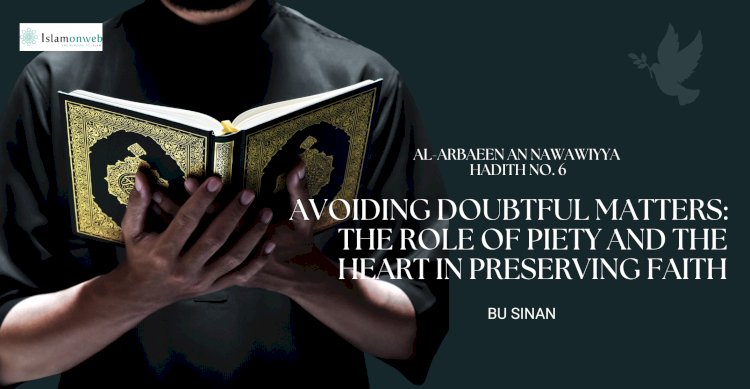


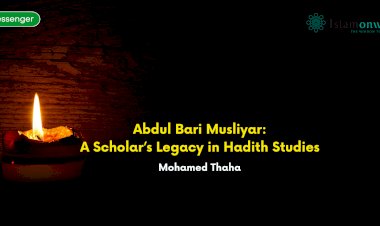
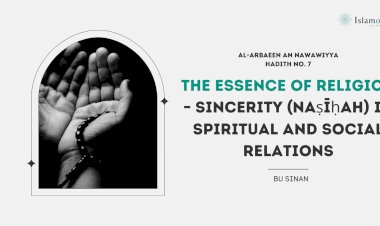
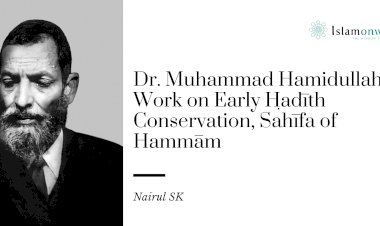
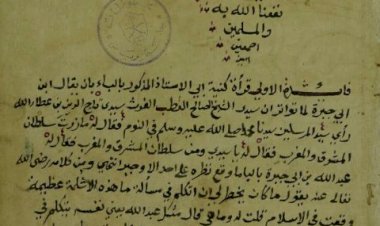
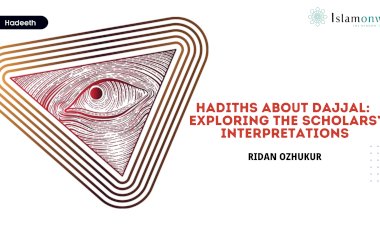
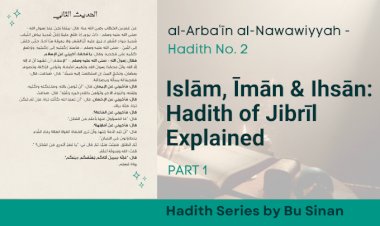














Leave A Comment